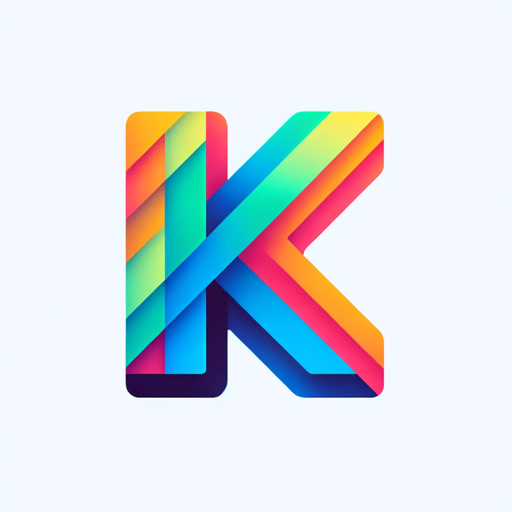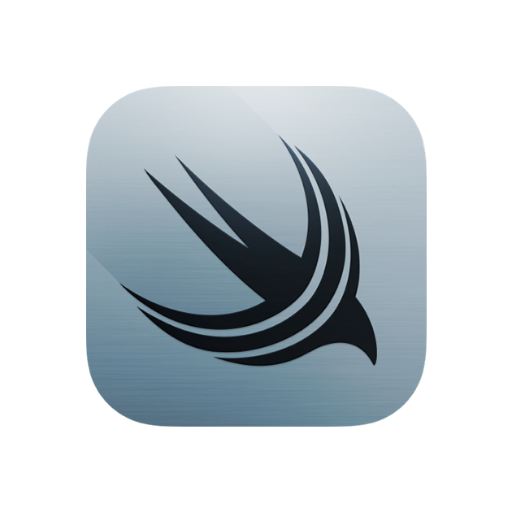Scala-AI tool for Scala coding.
AI-driven Scala development made easy.
如何使用Scala的map函数提升代码洁净度?
我的Scala类使用foldLeft的好处在哪里?
如何在Scala中使用函数式编程提升代码效率?
在Scala中如何使用flatMap来处理复杂数据结构?
Related Tools
Load More
Kotlin Expert
Expert in Kotlin programming, offering tailored advice and solutions.

Kotlin
Your personal Kotlin copilot, assistant, and project generator with a focus on responsive, beautiful, and scalable apps. Write clean code and become a much faster developer.
scala
chatgpt for scala learning

Apple SwiftData Complete Code Expert
A detailed expert trained on all 1,401 pages of Apple SwiftData, offering complete coding solutions. Saving time? https://www.buymeacoffee.com/parkerrex ☕️❤️

Power Query - M Guru
Expert in Power Query M code, providing validation, analysis, and M code solutions.

Javafx master
Friendly JavaFX expert for all-around support.
20.0 / 5 (200 votes)
Introduction to Scala
Scala is a modern programming language designed to be concise, elegant, and efficient, blending object-oriented and functional programming paradigms. Created by Martin Odersky in 2003, Scala runs on the Java Virtual Machine (JVM) and is fully interoperable with Java, making it a popular choice for applications that need to leverage existing Java libraries. The design of Scala is driven by the goal of providing a high-level language that is expressive, concise, and able to handle complex problems in a clear and maintainable way. By combining object-oriented and functional programming, Scala allows developers to write code that is both modular and scalable, fostering the development of robust and high-performance applications. For example, in object-oriented programming (OOP), you might define a class with properties and methods, while in functional programming (FP), you would focus on functions as first-class citizens. Scala allows you to mix these approaches seamlessly, enabling you to define classes and objects (OOP) alongside higher-order functions and immutable data structures (FP). This makes Scala an excellent choice for scenarios where you need the flexibility and robustness of OOP combined with the expressive power and conciseness of FP.

Core Functions of Scala
Interoperability with Java
Example
A Scala application can easily call Java methods and use Java libraries.
Scenario
Suppose you are working on a legacy enterprise application written in Java but want to introduce more modern programming practices. Scala allows you to gradually integrate new features by leveraging existing Java code, reducing the need for a complete rewrite. For instance, you can call Java’s `ArrayList` in a Scala program and manipulate it using Scala's more powerful collections API.
Functional Programming Support
Example
Using higher-order functions, immutability, and pattern matching in Scala.
Scenario
In data processing pipelines, you often need to apply a series of transformations to collections of data. Scala’s functional programming features allow you to define operations like `map`, `filter`, and `reduce` in a concise way. For instance, processing a large dataset in a distributed system like Apache Spark (which is written in Scala) becomes more intuitive and efficient by using these functional constructs.
Pattern Matching
Example
Using match expressions to deconstruct data types.
Scenario
Pattern matching is particularly useful in scenarios like processing abstract syntax trees (ASTs) in compilers, where you need to handle different possible shapes of data structures in a clean and readable way. For example, you can define a function that matches different shapes of a sealed trait, handling each case individually, which is much cleaner than using multiple `if-else` or `switch-case` statements.
Ideal Users of Scala
Enterprise Developers
Scala is well-suited for enterprise developers who are working on large-scale, performance-critical applications. Its seamless interoperability with Java makes it an attractive choice for teams that need to maintain or extend existing Java-based systems while adopting a more expressive and modern language. These users benefit from Scala’s ability to write concise code that is easier to maintain and debug.
Data Engineers and Scientists
Scala is highly favored by data engineers and scientists, especially those working with big data technologies like Apache Spark. Scala’s functional programming capabilities align well with the needs of data transformation and processing, making it a powerful tool for building scalable and efficient data pipelines. The language’s expressiveness and type safety help in writing reliable code, which is crucial when dealing with complex data operations.

How to Use Scala
Visit aichatonline.org for a free trial
Access the tool without needing to log in or subscribe to ChatGPT Plus. This is the first step in exploring Scala's capabilities.
Set Up Your Development Environment
Ensure that you have the necessary prerequisites, such as Java installed on your system. Download and install Scala by following the official installation guide provided by Scala's website.
Start Coding with Scala
Use an IDE like IntelliJ IDEA or a simple text editor. Create a new Scala project or script. You can start by writing basic syntax, exploring its functional programming features, or integrating with existing Java codebases.
Explore Scala Libraries
Utilize the vast ecosystem of Scala libraries to enhance your development process. Libraries like Akka, Play Framework, and Spark are popular for building reactive systems, web applications, and big data processing.
Join the Scala Community
Engage with the Scala community through forums, GitHub, and other platforms to get support, share knowledge, and stay updated on the latest developments in the Scala ecosystem.
Try other advanced and practical GPTs
Kerio Control Solver
AI-powered Kerio Control Troubleshooting

SynthGPT
AI-powered synthetic time series generator

DAIN AI UseCase Assistant
Turn AI ideas into actionable business cases.

스몰토크
AI-driven conversations on food, science, sports, and more.

TerraGPT
AI-powered cloud automation made easy.

Kube Guru
AI-powered Kubernetes knowledge at your fingertips

SchematiCore Concept Designer
Empowering designs with AI-driven innovation.

Funky POP-GPT
AI-powered Funko Pop transformations.

Générateur d'Images
AI-Powered Image Generation Made Easy

Peptide Science
AI-powered personalized peptide regimens.

Screenwriting Assistant
AI-powered screenplay creation and refinement

Work Plan Assistant
AI-powered planning for creative professionals

- Web Development
- Big Data
- Functional Programming
- Interoperability
- Distributed Systems
Common Questions About Scala
What is Scala primarily used for?
Scala is a versatile programming language that supports both object-oriented and functional programming paradigms. It's widely used for building scalable web applications, distributed systems, and big data processing with tools like Apache Spark.
How does Scala compare to Java?
Scala runs on the JVM, making it fully interoperable with Java. However, Scala offers more concise syntax, powerful functional programming capabilities, and advanced features like pattern matching and immutability, which make it more expressive and less verbose compared to Java.
What are the benefits of using Scala for big data?
Scala is the preferred language for Apache Spark, a leading big data processing framework. Scala's functional programming model, immutability, and expressive syntax make it ideal for writing parallel and distributed algorithms required for big data applications.
Can I use Scala for web development?
Yes, Scala is highly suitable for web development. Frameworks like Play offer robust tools for building high-performance web applications in Scala. Scala's integration with Akka also allows for the development of reactive and scalable systems.
Is Scala difficult to learn?
Scala can be challenging for beginners due to its advanced features and syntax that differs significantly from other languages like Java or Python. However, its powerful capabilities and versatility make it worth the effort. Many developers find that Scala becomes easier to work with as they gain more experience.